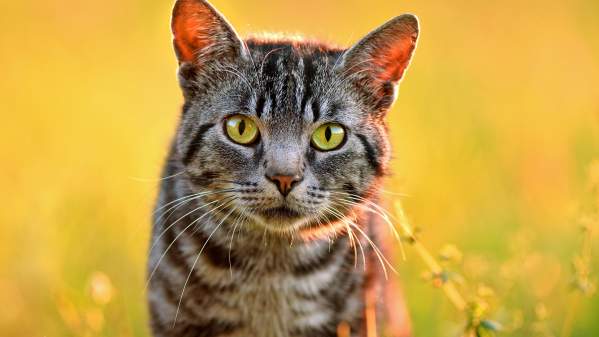You’ve likely heard the saying, "Cats have nine lives." While you probably know that the idea of a cat having nine lives is a myth, have you ever wondered where it all started — or if there’s any truth at all behind it?
The Origins of the Myth
No one knows the exact origin of the myth that cats have nine lives. However, historians have some ideas about where the mythical quality of cats' penchant for survival came from.
Cats' Godlike Nature in Ancient Egypt
First, cats began to develop a mythical quality in ancient Egypt. The ancient Egyptian people worshipped gods that resembled a feline or were half-feline in form, thanks to cats' protective, motherly nature. The Egyptians respected felinity, and connected it to divinity and immortality.
Cats in English Literature
Some believe that the origin of the nine lives myth comes from an English proverb. The proverb reads: "A cat has nine lives. For three he plays, for three he strays, and for the last three he stays." While this proverb was simply intended to describe a cat's lifecycle from being a kitten to an adult cat to a senior cat, it's possible that it caught on and people began to believe that cats actually had nine lives.
The myth also appears in Shakespeare’s play Romeo and Juliet, Act 3, Scene 1: where Mercutio says to Tybalt, "Good king of cats, nothing but one of your nine lives."
The Cultural Significance of the Number 9
The number nine has significance in several other traditions and cultures. Nine is a lucky number in Chinese culture, because it sounds the same as the word "long-lasting." And there are nine muses in Greek mythology. Also, nine may be considered lucky in the early Christian tradition, since the number nine represents a trinity (three times three).
Is There Any Truth Behind the Myth?
Despite the idea that cats are godlike and invincible, and the fact that nine is a significant number in many cultures, the reality is that cats do not actually have nine lives.
Dispelling the Myth of Nine Lives
For one, cats are not described as having nine lives in all cultures. While certain areas around the world believe that cats have multiple lives, the number nine is not universal. For example, in Arabic-speaking parts of the world, cats are believed to have six lives. And in Spanish-speaking parts of the world as well as Italy, Greece, and Brazil, people believe that cats have seven lives. The fact that the myth is not agreed upon across the board proves that it's more folklore than fact.
Beyond the inconsistency of the myth, however, the science is plain: Like all other animals on the planet, cats only have one life that ends much like the lives of other living beings. A study published in October 2016 in Scientific Reports found that the #1 killer of cats (at the end of a long life) is kidney disease, and that acute kidney failure usually leads to the death of a cat around age 15.
The Partial Truth That Explains Why the Myth Has Persisted
While cats don’t actually have nine lives, many humans believe this myth because cats are able to survive falls that would surely be lethal to most humans. But science can explain this phenomenon.
First, cats have an air-righting reflex. When they fall, cats have the natural ability to twist their body around and land on their feet — even when they are dropped from very high places. And landing on all fours helps dissipate the impact of the fall.
Additionally, cats have more vertebrae than humans do. This makes cats very flexible, and allows them to have extreme balance and quick reflexes, which can also help them survive tough situations and risky falls.
Finally, cats are pretty smart — and that brainpower may also play a role. “For instance, I’ve treated many dogs in my practice lifetime for poisonous snake bites, but I’ve never treated a cat for poisonous snakebite; they’re too smart to approach a snake," says Cullen M. Dauchy, DVM, veterinarian and former owner at the Katy Veterinary Clinic in Katy, Texas.
Cherish Your Cat’s Life
Cats are durable creatures who can survive trauma. However, despite their toughness, they are still graceful, gentle, living creatures. So even though you know they can survive challenging situations, you should be careful with a cat.
